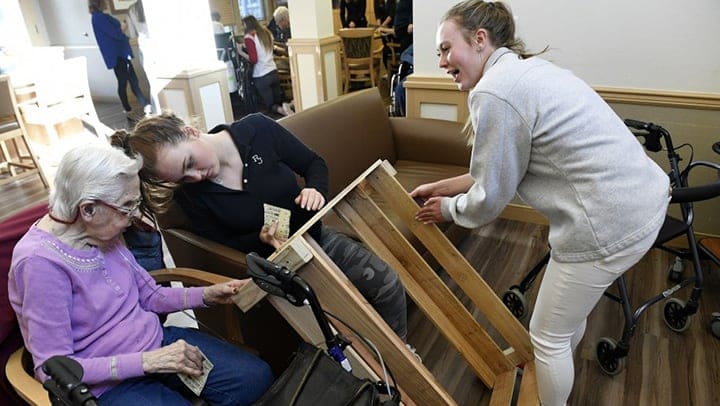
Enough can’t be said for the positive impact that a sense of purpose makes on individuals challenged with dementia. The same can be said for interactions with animals. So imagine the impact of putting the two together: doing purposeful, community service work for animals.
The residents of Chelsea Place Memory Care in Aurora, Colorado were delighted to participate in a project to serve the local dog parks. The project involved building what are referred to as “dog stick libraries” – crates built to hold sticks, tennis balls and other dog toys.
Local students from Regis Jesuit High School got together with Chelsea Place residents to saw, hammer, nail and build the crates. The crates were then sent to local dog parks around the area. This unique program helps young people learn more about dementia and gives them a valuable opportunity to interact in a positive, constructive way with them. And, while a few of the students worked with wood before, many had not. But all enjoyed the process, learning to work together and gaining the benefit of feeling they had accomplished something very special.
The program caught the attention of local news outlets, including the Denver Post who sent out a reporter to interview the students, residents and staff. Jenni Dill, Life Engagement Director for Chelsea Place explained to the reporter how the process helps students learn how to get into a different sort of reality that accompanies dementia. “One of the things the girls learn is wherever someone’s at in their reality, you just join them. So if he thinks he lives on the moon then, hey, we’re getting on the rocket ship. That’s just the way it goes,” she said.
And, as is so often the case when students get together with seniors, the students came away from the experience having learned a few things about word working from some of the residents who had worked with wood before. “If I’m being honest, the first day I had to remember these people have dementia but, now, I can honestly say I forget it half the time,” Juliette Bruner told the Denver Post.
Related Articles: